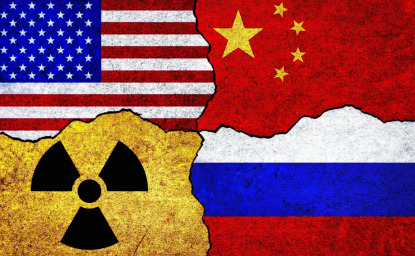The Title VIII Prize, sponsored by the U.S. Department of State's Title VIII Program, is awarded annually by the AAASS for two distinguished policy papers by graduate students or recent MA/MS/PhD grads, one on Southeast European Affairs and one on Eurasian Affairs in any policy relevant discipline.
RULES OF ELIGIBILITY FOR THE 2006 TITLE VIII PRIZE COMPETITION
• The policy paper must have been submitted to the Title VIII Program office in 2005 or 2006;
• Authors must be graduate students or recent graduates (Master's or PhD within the past three years) who are citizens or permanent residents of the United States;
• The author is not required to have received prior Title VIII funding for research or language training, and the submission need not be published to be eligible;
• The policy paper must be based on the author's own work and can be any type of article, graduate school term paper, policy brief, white paper, or analytical assessment, preferably by a single author, or by no more than two authors;
• There is no limit to the number of pages submitted, however the applicant should demonstrate an understanding of policy style and format and edit appropriately;
• Any submission that is a summary of a longer work (e.g., policy brief, etc.) should include the longer work for comparison purposes (e.g., dissertation chapter, research paper, etc.)
• Works may deal with any area of Southeast Europe, Russia, or Eurasia; works may cover cross-border, regional, or comparative issues that include countries outside these specific regions as long as the eligible countries are a key component of the policy paper;
• Policy papers that reflect the author's understanding of foreign policy priorities and are written in a length and style accessible to U.S. Government policy makers, program officers and analysts will be considered very competitive;
• Textbooks, collections, translations, bibliographies, and reference works are ineligible.
2006 Title VIII Prize Committee and Nominating Instructions
Send the nomination by email, with the submission and applicant's C.V. as email attachments, to bakers@state.gov:
Susie Baker, Committee Chair
Title VIII Program Officer
Bureau of Intelligence and Research
U.S. Department of State
The deadline for submissions has been extended: nominations must be received no later than June 30, 2006. Submissions should be clearly marked "Title VIII Prize Nomination" in the subject line of the email. Nominations may come from any source from within and outside of academia, and applicants may self-nominate. An acknowledgment that your nomination was received will be sent by email.
Committee Members will include U.S. Government officials and representatives from academia, think tanks, non-governmental organizations and/or other entities engaged in work requiring policy expertise.
The 2006 award will be announced at the 38th AAASS National Convention in Washington, DC. We expect to award two prizes. Prize-winning policy papers are published and distributed throughout the U.S. federal government interagency community by the U.S. Department of State, and the author(s) may be invited as a featured speaker for the Title VIII Policy Forum Series at the State Department.
Please contact Susie Baker (bakers@state.gov) with any questions about the award and/or policy paper style and format. Title VIII on the web: www.state.gov/s/inr/grants




